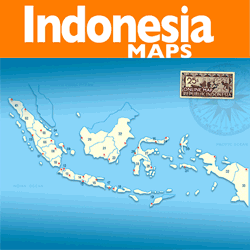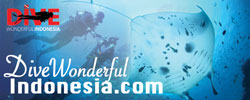Sorong City Souvenirs
Sorong city is the second largest city in Papua which is inhabited by almost 240 thousand people. This city produces cocoa, cloves, and coconut as plantation commodities. As well as for tourism, which can be explored in this city are traditional, natural, and cultural tourism. The many types of this tour will add unique experience for visitors. After enjoying all the tourist destinations in Sorong city, you should buy souvenirs for your family and friends. Visitors can shop at traditional markets or come to souvenirs shops in Sorong city.
What are the souvenirs that can be found in Sorong city?
=> Kaokanao Souvenirs Shop
This shop is located in Sorong city, precisely on Jalan Ahmad Yani. Here, all visitors can buy T-shirts and clothes typical of Sorong city and wooden statues of Serui, Asmat and Biak.
=> Various Batik Shops
You want to find Papuan batik? Dont worry. It turns out that Papua also has batik cloth. The name is Papuan Batik Assorted Shop on Jl. Sam Ratulangi. It is only 5 minutes drive from Domine Eduard Osok Airport. This shop sells batik with Papuan motifs, such as birds of paradise to tifa, Papuan musical instruments and more.
=> Shredded Roll
Abon rolls are typical souvenirs of roll bread. The normal filling of this roll is shredded, chopped scallion, and minced meat. However, there are many variations on offer such as spicy, salty, tuna filling, sausage filling, chocolate and milk. This roll is made from sugar as the main ingredients, eggs, flour, bread developer, and butter. Then, you will get the final touch of cheese shavings, sprinkling of sesame, and chopped walnuts sprinkled on top. This bread is almost the same as the one in Manokwari. The difference is, abon rolls from this area can reach to ten meters.
=> Coffee Senang
Sorong City has processed coffee as souvenirs. Kopi Senang (Coffee Senang) to be the only producer in Sorong City. For that, caffeine lovers can buy processed coffee as souvenirs. Various processed are coffee beans, coffee powder, coffee sachets, and coffee bags. And the types of coffee sold are Arabica Robusta, and Mixed Arabica-Robusta.
This coffee has become very popular as a souvenir because Sorong City rarely has coffee shops and its area does not have coffee bean-producing gardens. The best-selling product purchased is coffee grounds. The aroma of Coffee Senang is quite good but the taste is not as good as the taste of Moanemani coffee beans according to coffee connoisseurs who have tried it.
=> Sago Martabak
Sago martabak is a side dish made from sago. Enjoy this cake will definitely feel full because this martabak contains a lot of carbohydrates. Don't forget to eat this martabak because other regions don't have it. Visitors can also buy these snacks as souvenirs. Sago martabak is made from sago flour that has been made into dough until it enters the frying pan. After that, it is filled with brown sugar so that it change to a snack with sweet taste. Martabak is usually served when welcoming guests who come to the house.
=> Lontar Cakes
The lontar cake is sweet cake that tastes like milk pie, a Balinese souvenir. According to history, this pie is a cake that the Dutch brought to Sorong. In Dutch, this pie is called “londart” which means circular cake. However, because the people of Sorong have difficulty to mention it, finally they pronounce this pie as lontar.
The lontar cake has different shape to the Balinese milk pie. This cake is a 7x magnification of the Balinese milk pie. In addition, the sides of the Balinese milk pie and lontar cake are different. The lontar cake has regular edge that looks like a flower petal at a glance. While the Balinese milk pie, has folded edge. Even so, the lontar cake has similar taste as the Balinese milk pie, sweet.
=> Anthill / Sarang Semut Papua
Ant nests (has known as Sarang Semut in Papua) are often hunted as souvenirs because they have various properties in curing liver, heart disease, diabetes, cysts, prostate, and cancer. Ant nest is a native plant of Wamena but can live in Sorong land. The fruit of this plant is white but after processing it turns brown. The reason it is called an ant's nest is because the fruit has hollow part which it cut looks like ant path in anthill.
=> Red fruit
Just like ant's nest, red fruit is also often hunted as medicine. From several studies, found the fact that this fruit can fight cancer cells such as breast, lung, and cervical cancer. Reportedly also this fruit can prolong life. However, this news has not yet been verified. Red fruit plants grow in six different areas in Papua. The people of Sorong consume this fruit by boiling it and then roasting it in a stone oven or eating it raw. Processing in any way does not reduce the good content so you can be free to process it in any way. The local people also processes this fruit into fruit juice which is stored in glass bottles so that it can be used as long-lasting souvenirs and supplement drinks.
=> Sago Plate Cake
Sago plate cake is typical Papuan snack, including Sorong area. This snack has slightly bland taste. This snack is often eaten with a cup of tea and coffee. How to eat it is to dip it in a cup of tea or coffee and eat the wet part. How to make this snack is to sift the sago first, to separate the coarse and fine grains. Then, boil it in sugar water until it thickens. Then, shape it into a block and stick one side on a freshly molded slab and burn it on a direct fire for thirty to sixty minutes.
=> Cenderawasih Batik
Cenderawasih batik is bird motif batik that is the icon of Papua. This batik is also a choice of souvenirs from Sorong City. In addition to the Cenderawasih motif, there are also motifs on typical Sorong batik which depict Asmat culture. This batik is also made with two techniques: writing and stamping. During the process, the motif is made in large. In contrast to Javanese batik, which has small and uniform pattern. Most of the basic colors used in Cenderawasih batik are earth colors so that the color harmonization looks very neat. In addition to sheet fabric, outlets in Sorong also sell clothes and bags.
=> Noken
Noken is a bag made of tree bark fibers. This fiber is taken from the nawa tree, forest orchid, and manduam. To make this one bag, it takes minimum of twelve hours. In addition, noken can only crafted by native Papuans. This bag is also used to store groceries, sago, and tubers. The way to wear it even by placing it on the head. Because of this uniqueness, UNESCO decided to keep it sustainable.










